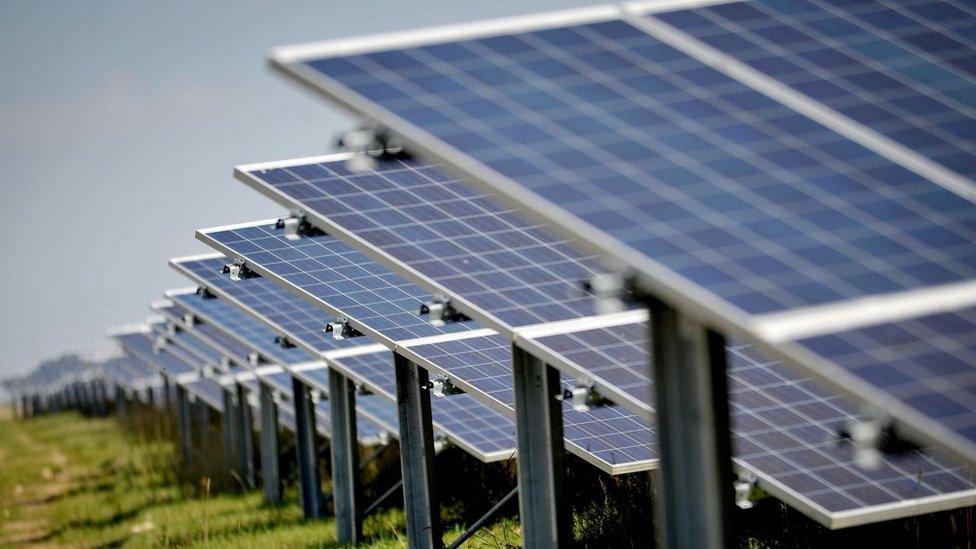Sizewell C: Waste permits issued for Suffolk nuclear plant
- Published
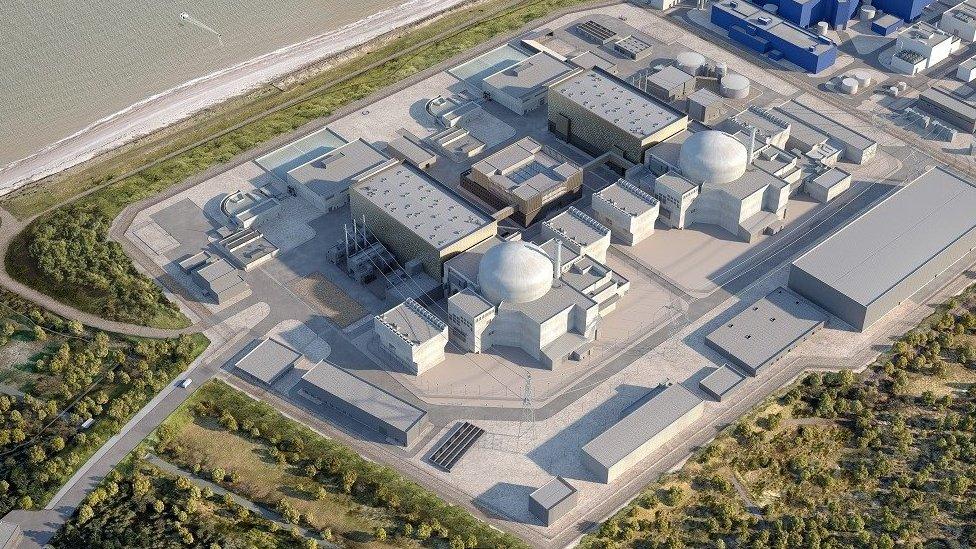
The planned plant is expected to cost about £20bn and would be built just north of the existing Sizewell B plant
The government regulator has granted environmental permits for the disposal of waste for the proposed Sizewell C nuclear power station.
The Environment Agency permits will cover waste from the new plant, its build, commissioning, operating, and ongoing decommissioning of Sizewell A.
NNB Generation Company (SZC) Ltd, external, part of EDF Energy, applied for permits.
Protest group Stop Sizewell C said it was "disappointed" they had been issued for the site on the Suffolk coast.
The Environment Agency said it consulted on the application from July to October 2020 and on its proposed decision and draft permits from July to September 2022.
It has now made its final decision and issued permits to cover the following:
radioactive substances activity permit to dispose of and discharge radioactive waste
combustion activity permit to operate standby power supply systems using diesel generators
water discharge activity permit to discharge returned abstracted seawater from the cooling water system, and two fish recovery and returns systems, and other liquid trade effluents (including treated sewage effluent) to the Greater Sizewell Bay in the North Sea
"We consider that the limits and conditions in the permits are suitable to protect people and the environment," the agency said on its website.
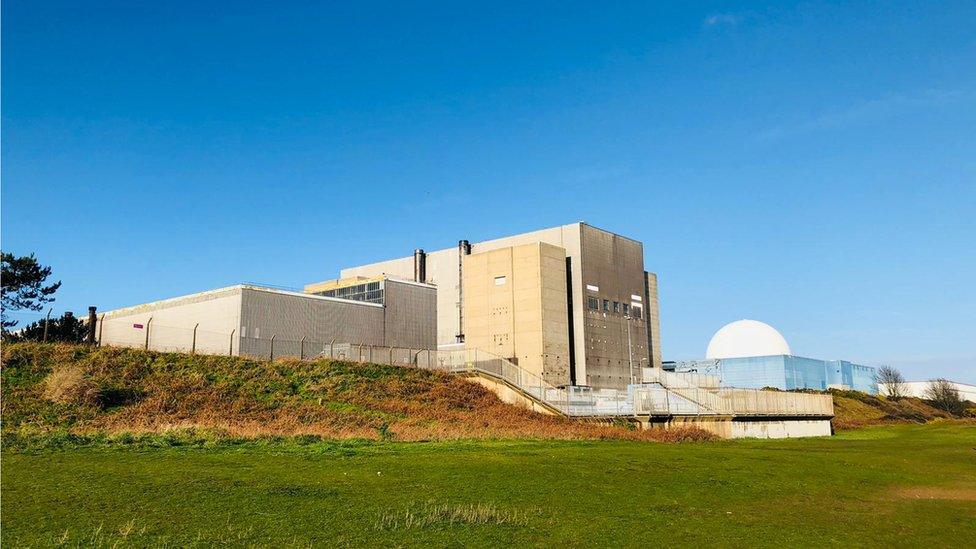
The white-domed Sizewell B is due to stop generating electricity in 2034, while Sizewell A (left) stopped generating in 2006 is in the lengthy process of decommissioning
Paul Collins, chairman of Stop Sizewell C, external, said: "We are disappointed with the granting of these permits, but it must be remembered that Sizewell C still has no permits for construction and has numerous other regulatory and financial obstacles to overcome.
"We are especially disappointed with the water discharge permit as, unlike at Hinkley Point C [in Somerset] where the government agrees that an acoustic fish deterrent is needed to reduce fish deaths, the Environment Agency has decided none is necessary at Sizewell C.
"This will result in thousands of fish dying every day in Sizewell C's cooling system."
Last year, Business Secretary Grant Shapps confirmed a £700m government investment in the project.
The two-reactor plant, which EDF Energy said would be able to generate 7% of the UK's electricity needs, was approved by the government in July last year, when Boris Johnson was prime minister.
Earlier this month, anti-nuclear power campaigners also mounted a legal challenge to the development consent granted by Kwasi Kwarteng, who was business secretary at the time.

Find BBC News: East of England on Facebook, external, Instagram, external and Twitter, external. If you have a story suggestion email eastofenglandnews@bbc.co.uk, external
Related topics
- Published22 March 2023

- Published29 November 2022
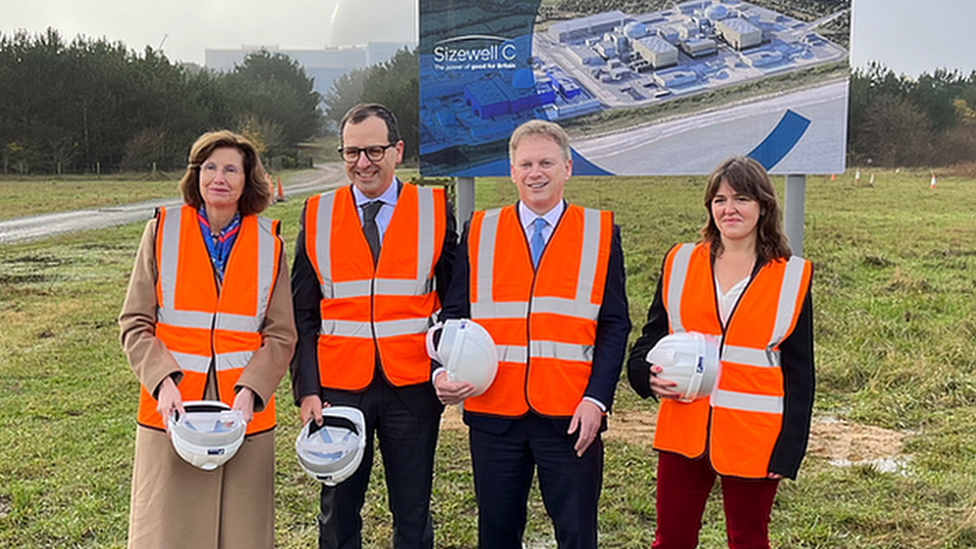
- Published15 June 2022

- Published2 November 2023
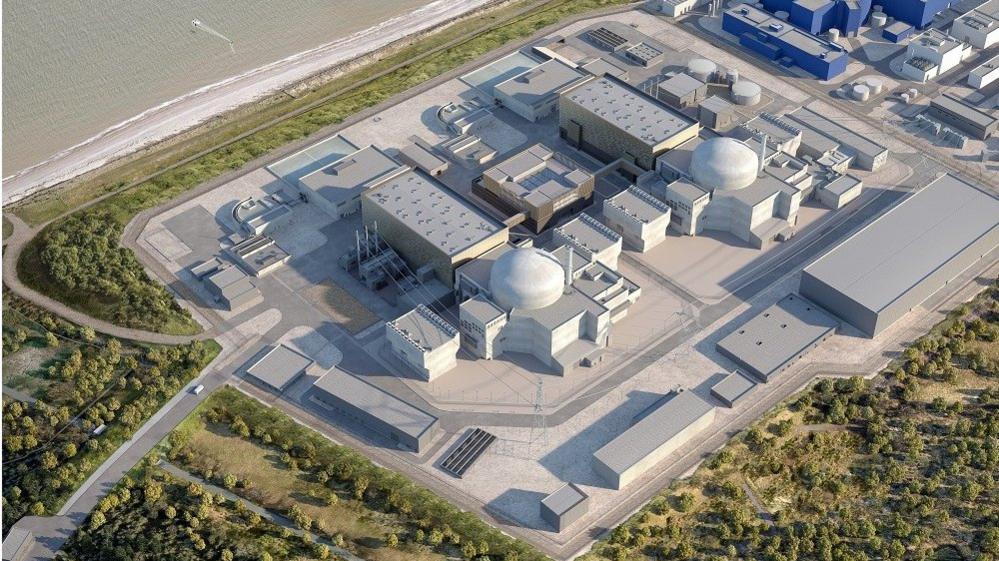
- Published29 October 2022
